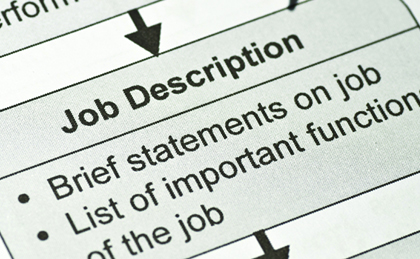Lots of employees have a small question in their mind, small but important. “What are the works I have to do, as per my designation?” Some employees really don’t know clearly, what their job suggests to do or don’t. while some employees, in spite of knowing, avoid their suggested piece of work by saying, “I am not explicitly being told to do this/that”. The fact is, “A broad, general, and written statement of a specific job, based on the findings of a job analysis, which includes duties, purpose, responsibilities, scope, and working conditions of a job along with the job’s title, and the name or designation of the person to whom the employee reports.” This is known as JOB DESCRIPTION, as defined by BusinessDictionary.
A broad, general, and written statement of a specific job, based on the findings of a job analysis. It generally includes duties, purpose, responsibilities, scope, and working conditions of a job along with the job’s title, and the name or designation of the person to whom the employee reports. Job description usually forms the basis of job specification.
Read more: http://www.businessdictionary.com/definition/job-description.html
So, job description is a document intended to provide an outline of the main duties and responsibilities of a specific position or Job or designation. This statement is usually being made by HR department.

Why there should be a Job Description?
There are many benefits to an effective job description. Here are just some of its key uses:
- To provide the employee with the expectations that are required of them in the role.
- To provide enough detail to help the candidates assess if they are suitable for the position.
- To support the recruitment team during the selection process.
- To help formulate questions for the interview process.
- To allow the prospective employee to determine their role or standing within the structure of the organisation.
- To assist in forming a legally binding contract of employment.
- To help set goals and target for the employee upon joining.
- To aid in the evaluation of the employee’s job performance.
- To help formulate training and development plans.
With so much of importance a job description should be precise, to-the-point and descriptive at the same time. A precise Job Description is a result of professionalism.

